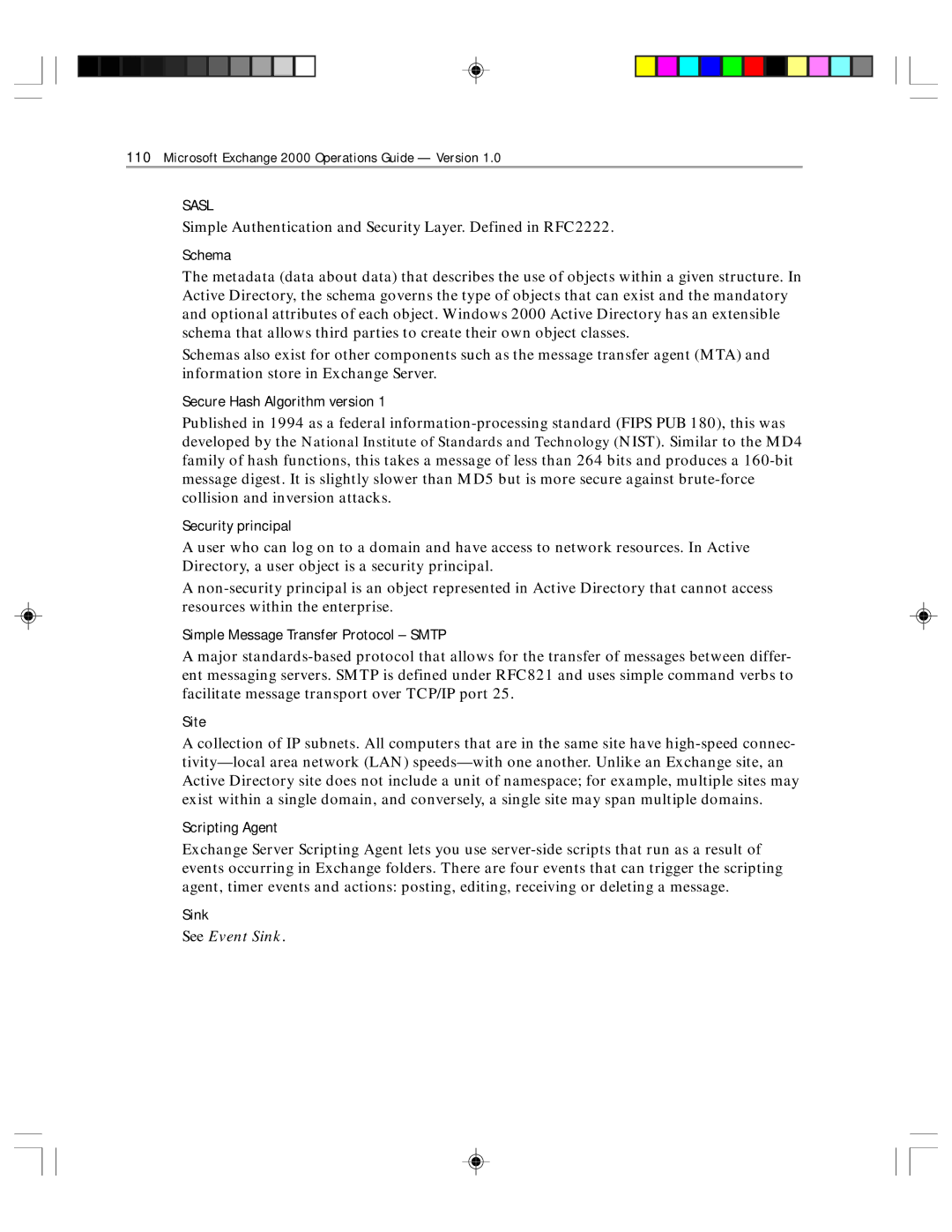110Microsoft Exchange 2000 Operations Guide — Version 1.0
SASL
Simple Authentication and Security Layer. Defined in RFC2222.
Schema
The metadata (data about data) that describes the use of objects within a given structure. In Active Directory, the schema governs the type of objects that can exist and the mandatory and optional attributes of each object. Windows 2000 Active Directory has an extensible schema that allows third parties to create their own object classes.
Schemas also exist for other components such as the message transfer agent (MTA) and information store in Exchange Server.
Secure Hash Algorithm version 1
Published in 1994 as a federal information-processing standard (FIPS PUB 180), this was developed by the National Institute of Standards and Technology (NIST). Similar to the MD4 family of hash functions, this takes a message of less than 264 bits and produces a 160-bit message digest. It is slightly slower than MD5 but is more secure against brute-force collision and inversion attacks.
Security principal
A user who can log on to a domain and have access to network resources. In Active Directory, a user object is a security principal.
A non-security principal is an object represented in Active Directory that cannot access resources within the enterprise.
Simple Message Transfer Protocol – SMTP
A major standards-based protocol that allows for the transfer of messages between differ- ent messaging servers. SMTP is defined under RFC821 and uses simple command verbs to facilitate message transport over TCP/IP port 25.
Site
A collection of IP subnets. All computers that are in the same site have high-speed connec- tivity—local area network (LAN) speeds—with one another. Unlike an Exchange site, an Active Directory site does not include a unit of namespace; for example, multiple sites may exist within a single domain, and conversely, a single site may span multiple domains.
Scripting Agent
Exchange Server Scripting Agent lets you use server-side scripts that run as a result of events occurring in Exchange folders. There are four events that can trigger the scripting agent, timer events and actions: posting, editing, receiving or deleting a message.
Sink
See Event Sink.

